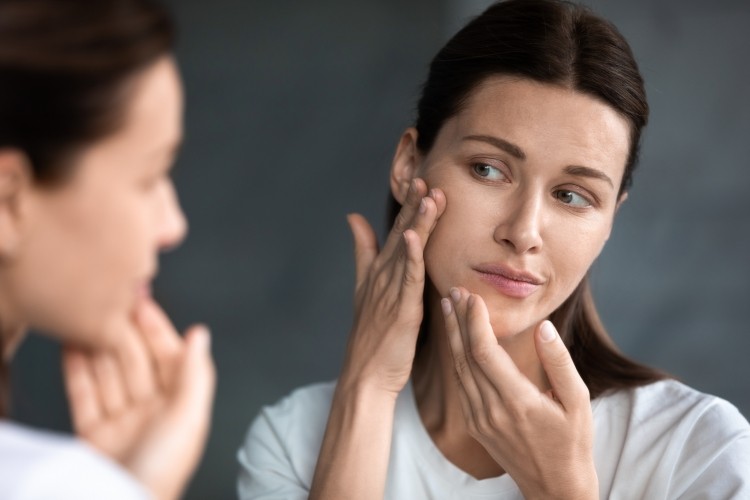Botanical supplement reduces effects of pollution on skin health, says study

Exposure to air pollution can result in accelerated skin ageing, and inflammatory or allergic skin conditions such as atopic dermatitis and acne. While cosmetics can protect the most external layers of the skin from pollutants, it is known that internal structures of the skin can also be affected.
Zeropollution, by Monteloeder, is a natural, propriety extract ingredient designed for internal use, and is composed of four standardised botanical extracts – Olea europaea leaf, Lippia citriodora, Rosmarinus officinalis, and Sophora japonica.
The new 12-week study, part funded by Monteloeder, was designed to assess the efficacy of oral supplementation with Zeropollution, compared with a placebo, in reducing pollution-induced oxidative stress and in improving a variety of skin parameters related to skin ageing.
It included 100 female subjects between the ages of 35 and 65 years, in generally good health, with normal or sensitive skin, who spend at least two hours outdoors every day in a polluted urban area.
Positive effects such as decreased wrinkle depth, increased elasticity and firmness, strengthened skin barrier function and reduction of dark spots were noted after only two weeks of ingredient consumption.
Researchers concluded that Zeropollution reduced oxidative stress-induced skin damage, and that the oral intake of this supplement may be considered a complementary nutrition strategy to avoid the negative effects of environmental pollution exposure.
“We are elated with the results of this breakthrough research and the support it lends to the efficacy of beauty-from-within solutions, and potential benefits of complementing the use of topical skincare and shielding products by incorporating a dietary approach as part of a more sophisticated skin-protection strategy” said Nuria Caturla, Ph.D, Chief R&D Officer at Monteloeder.
The benefits of the ingredient were further substantiated by a self-assessment questionnaire in which the treatment product was highly rated regarding its efficacy, with 82% of participants in the treatment group stating that they would purchase the product.
The study
The monocentric, stratified (50% Asian and 50% Caucasian subjects), randomised, double-blind, placebo-controlled, parallel-group study was conducted at Complife Group facilities in Milan, Italy.During the screening visit, a physical examination was carried out in order to assess the skin conditions. Subjects meeting the inclusion criteria were then enrolled and randomised.After the initial visit, subjects started taking one capsule of the dietary supplement or the placebo product every day for 12 weeks.
The study included the following measurements: Total antioxidant capacity on saliva (FRAP), oxidative damage on skin (lipoperoxides content, skin moisturisation (corneometer), transepidermal water loss (tewameter), skin radiance and colour (spectrophotometer), skin elasticity (cutometer), skin sebum content (sebumeter), wrinkle depth (microtopography imaging), and skin roughness (image analysis).
The researchers observed that after 12 weeks of supplementation, Zeropollution provided significant improvements compared to the placebo in all clinically measureable efficacy parameters including skin lipoperoxides.
Mechanism of action
The researchers suggest that the polyphenol-enriched dietary supplement may have a positive effect on the extracellular matrix status through the antioxidative activities of the phenolic compounds present in the active formulation.
They write: "Particulate matters and other pollutants induce ROS and inflammatory mediators that produce the activation of nuclear transcription complex AP-1, through intracellular kinases signalling activation (MAP kinases, p38 and JNK), leading to MMPs activation and decreased expression of collagen and other matrix proteins with the final consequence of reduced dermal matrix formation (1).
"..The daily plant-based nutraceutical consumption provided exceptional skin brightening benefits (five times more than the placebo group) and significantly lightened the hyperpigmented areas on the cheekbone (2.5 times more than the placebo group)...In addition to the antioxidant effect, the beneficial properties of the polyphenolic blend may be mediated through the inhibition of the AhR activation induced by pollutants.
"The aryl hydrocarbon receptor is a ligand-activated transcription factor found in various skin cells, including keratinocytes, fibroblasts, melanocytes and Langerhans cells. Non-activated AhR is trapped in the cytosol but under the effect of various environmental aggressors (i.e. UV radiation, O3, tobacco smoke and air pollutants, especially PAH-rich PM) AhR translocates to the nucleus where it stimulates the expression of genes containing the xenobiotic response.
"Some of these genes control the expression of proteins involved in oxidative stress reactions, inflammation, immunosuppression, pigmentation, premature ageing and cancer in the skin. Different studies have proven the capacity of different polyphenols present in the formula to inhibit the AhR activation in response to toxic substances and UV radiation."
Source: Food & Nutrition
Nobile, V., Schiano , I., Peral, A., Giardina , S., Spartà, E., & Caturla, N.
"Antioxidant and reduced skin-ageing effects of a polyphenol enriched dietary supplement in response to air pollution: a randomized, double-blind, placebo-controlled study"













